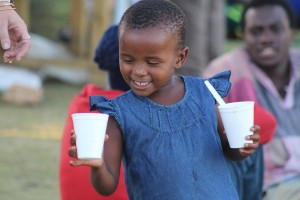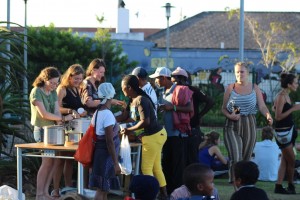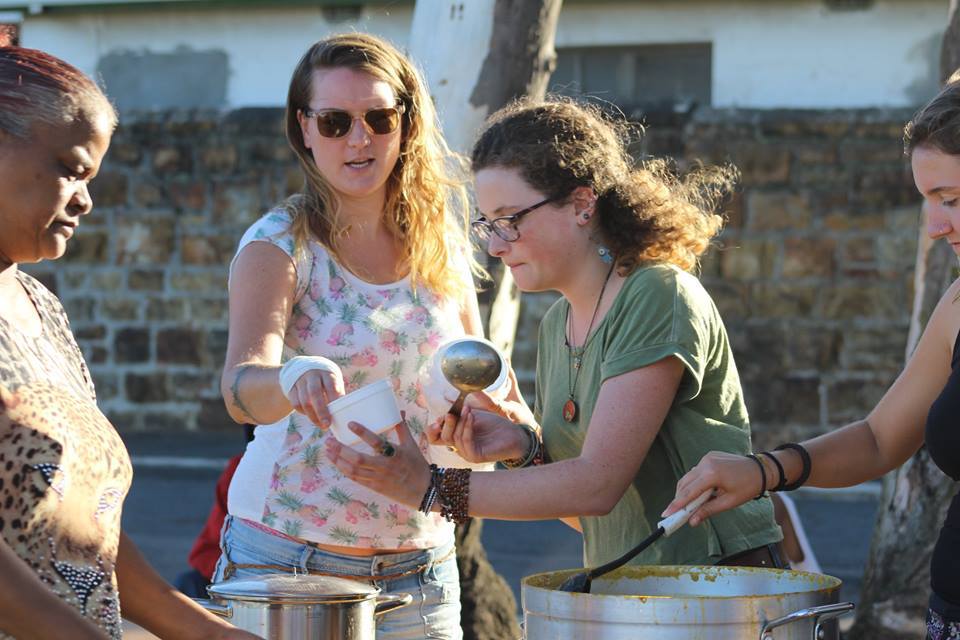by Kara Sassone
When Sophie Chaney packed up her bags and headed off to her co-op in Cape Town, South Africa, she anticipated working in the field for the South African National Biodiversity Institute. The biology major has done that, often collecting pollen samples from flowers in order to compare them to other samples captured in other areas.
But what she’s also done is start a soup kitchen. The idea was born, Chaney says, from a French student who wanted to offer something to her community on her last day there. But Sophie and a few of her friends decided it shouldn’t be a one-time event. Instead, they now cook, set up and feed dozens of people every week.

The soup kitchen welcomes guests of all ages. Photo courtesy Sophie Chaney.
“We typically cook a vegetable soup,” Chaney writes. “We also purchase lots of bread, and often each week we will also bring some sort of treat, especially if we are aware of a birthday of one of the homeless folks, or of a holiday.” She adds that the sweets are the most popular and run out quite fast. Often there is live music, as well, making it even more fun and like a party.
Over the past few months, the number of people who attend has grown. Some weeks are quieter than others. But when Chaney and her friends are able to get on the streets and remind people and inform new people of the gathering, the crowd can be quite large. “We have a lot of regulars, and I see them frequently around the neighborhood,” said Chaney. “I am surprised how many know my name and stop me to say hello or give me a hug.”

People line up to receive food at the soup kitchen. Photo courtesy Sophie Chaney.
For the most part the group has done this on its own, though they have received some support from a nearby soup kitchen. The kitchen will send volunteers or provide extra food – “which has been a huge help,” Chaney writes. “We fund it ourselves, and any students or interns who come by the soup kitchen can donate whatever amount works for them if they want to eat soup as well. It has worked quite well and we have been able to cover the costs of ingredients with some extra.”
Chaney explains there is a large disparity of wealth where she is, so there are a lot of people with very different circumstances living close together. “It has been really cool bridging that gap just a little bit and getting to know some of the people I see every day on the streets.”
She is hopeful that when she leaves South Africa this summer the soup kitchen will continue. She’s optimistic since the nearby soup kitchen is already involved. But students have done most of the work and organizing, and they will not be there for much longer. She adds, though, there are new students moving in regularly, so maybe some of the new people will show an interest and “we can pass the torch on and it can continue.”

